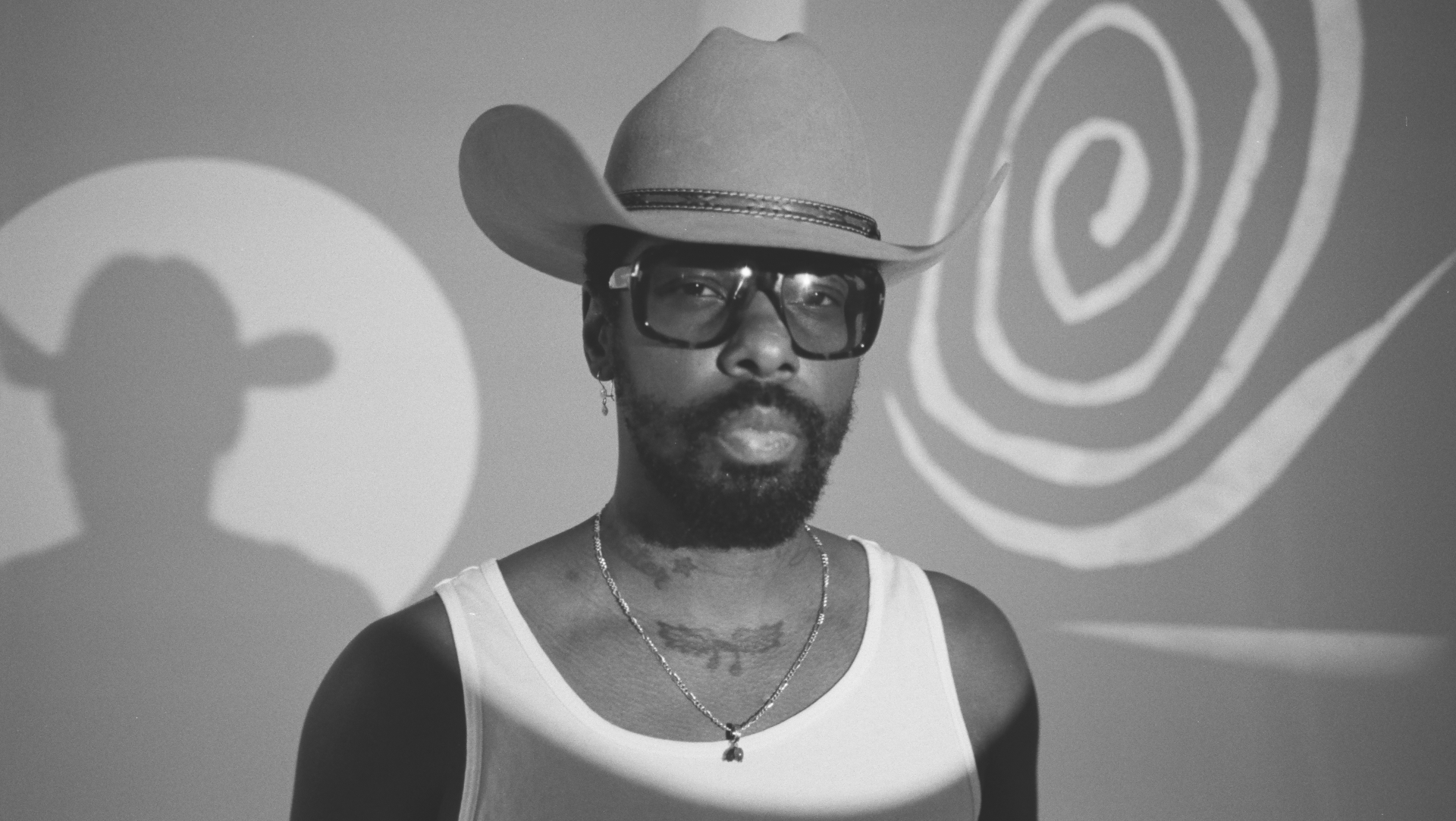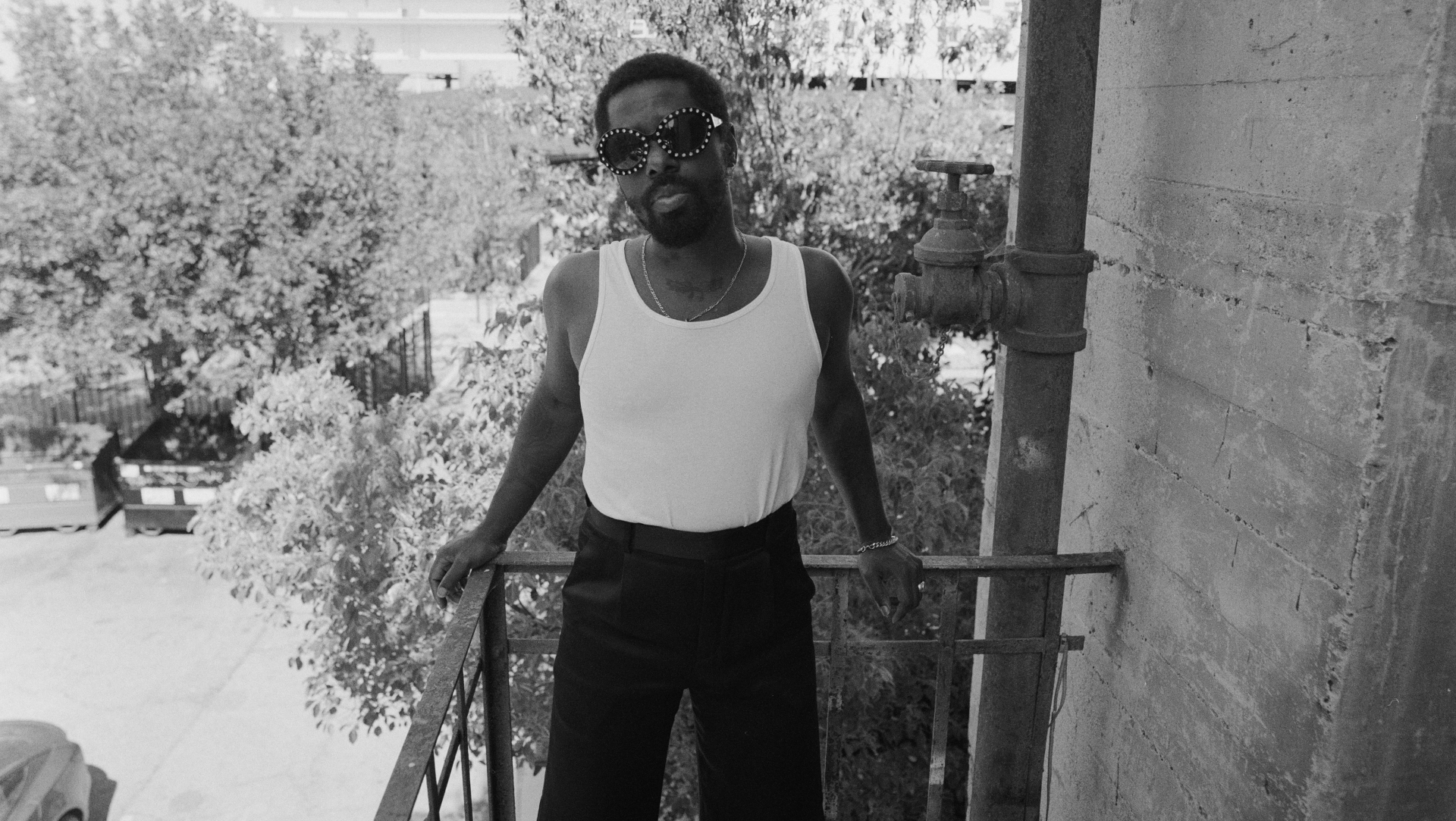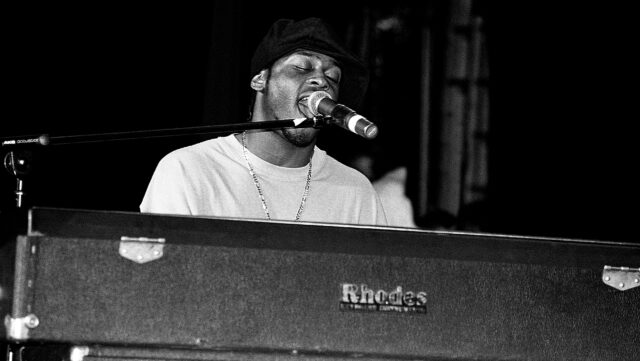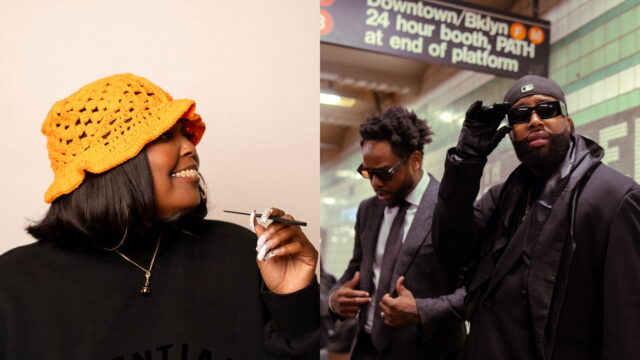Finding Your Sound: Curtis Harding
The contemporary soul icon gets inspiration from bass, Afrofuturism and the “mixture of vibes and area.”
by Brad Farberman
After listening back to the songs that would make up his new album, Departures & Arrivals: Adventures of Captain Curt, the soul vocalist and guitarist Curtis Harding noticed a theme. “Out in the Black” begins with the following lyrics: “Out in the dark, it’s plenty of cold, the black stains your soul of ash / When you’re out there, it’s hard to see clearly, you’re lucky to find your way back.” “Time” includes the line, “And I knew it, I could read the stars / But right outside, God, you kept my heart, oh lord.” And in the psychedelic “Running Outta Space,” Harding sings, “Running out of space, been trying to get away some time / A beautiful place says paint the walls of my mind.” A science fiction undercurrent was coursing through the LP, and a narrative came into focus, about a pilot or astronaut lost in space. He was inspired by concept albums like Marvin Gaye’s Here, My Dear, but also by music dealing more directly with the cosmos.
“I also love Afrofuturism, stuff like Parliament-Funkadelic and Sun Ra and all that kind of stuff,” explains Harding, who lives in Atlanta. “And even David Bowie is a huge inspiration on me, as far as that regard is. So it just felt right to do it, especially being that I do roots, American soul music and stuff as well. It was just fun.”
The big idea here — the comings and goings of the album title — is also in reference to life on the road, and the endless slog of touring. One needs to keep the music interesting from night to night, says Harding, while simultaneously resisting the urge to party all the time. It’s a lot to manage, all while being away from the people who mean the most to you.
“It’s fun for sure, and I love playing music, but there’s definitely a sense of feeling lost at times, and I want everybody to know that no matter what you’re doing, even if you’re a rock star, you’re a musician touring and stuff, everyone feels that way,” says Harding. “That’s one of the important things I wanted to get across to people.”
In terms of Harding’s compositional process, “there is really no method to the madness of writing. [laughs] It just happens when it happens and it is what it is.” A song can spring from a phrase, or it can start with a wordless, low end germ. Though primarily a guitarist, Harding also plays bass on a third of the tracks off Departures, including the sunny, anthemic “There She Goes.”
“That particular song started with bass — I wrote that song with the bass,” says Harding. “A lot of these songs are written with bass. So I had the bass line first, and then a melody kind of follows. It’s either a guitar riff or just a bass line or something. Or I have a melody. It’s either bass line, guitar riff or melody, which kind of coincides with each other. And then I search for a rhythm. And then within that, I just kind of listen to it and then just try to settle into it.”

“The Power,” an exultant disco track, was written several years back, but Harding rediscovered the demo while searching for something upbeat for Departures. Some tinkering, and some inspiration from the 1985 film The Last Dragon (and Willie Hutch’s song for the soundtrack, “The Glow”), was all it took to get the song up and running in 2025.
“So once I changed the bass line, I was like, ‘Oh, OK, I can see how this can be almost like a take your power back kind of situation,’” recalls Harding. “In regards to what the lyrics were. And then that’s when I came up with the chorus [sings] ‘When your pain is released and your love will increase.’”
Harding was born in Saginaw, Michigan, then moved to Mobile, Alabama, where his gospel singer mother was from. His father had lived in Memphis — one uncle worked with Isaac Hayes, and the other was friends with B.B. King. Surprisingly, guitar didn’t enter Harding’s world until he was in his early twenties — he started as a church drummer when he was six or seven. Music was “in our DNA,” he says.
“Just that mixture of vibes and area set the foundation for me for doing what I do,” says Harding, “being that my mom, she loves music, she would play all kinds of music in the house, especially gospel and soul stuff. Knowing the history of where my dad comes from, and then doing the research and listening and even sometimes being around those guys just kind of informed the foundation of what I do today. On top of me just being young and loving hip-hop. Having friends who introduced me to punk. Having a sister who loved hair metal and my other sister who had a rap group when we were younger. All of that together just kind of informs what I do.”



